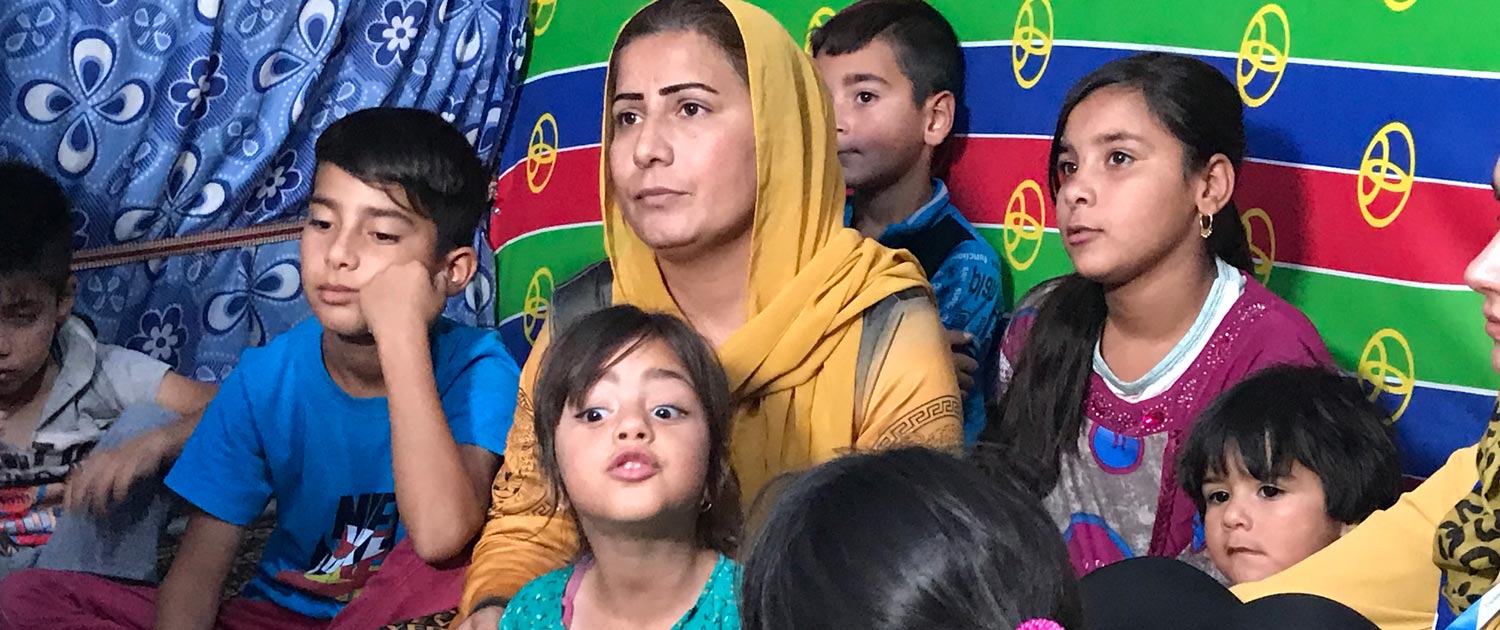Why is it important to work with communities?
Political violence does not only penetrate mental life of individuals but the entire social fabric. It is therefore essential to understand the individual within the community context with all of its social and cultural complexities. The community-based empowerment approach recognizes that communities have resources and strategies in dealing with distressing events.
Empowering communities in the context of emergency and political violence means to build on existing local capacities with the intention of enabling communities’ capacities for recovery and future development. The psychosocial impact of crisis and emergency situations are long-standing. Hence, the community work aims at enabling affected communities to sustain their support structures and resources for those sustaining impacts beyond the recovery period during crisis.
After forced migration, when individuals have to reorganize their personal, family and community life, it is especially important to rebuild and foster social, spiritual and cultural support systems on a community level. When having access to psychosocial support and when having a sense of being included, individuals are more likely to benefit from other components of recovery efforts.
What are capacities of communities for recovery and resilience?
Communities’ social, institutional, moral and spiritual resources can mitigate adverse effects of political conflict and displacement on people’s well-being. The availability of collective coping strategies, such as funerals, rituals and ceremonies and social support networks such as supportive families, friends, peer groups, religious and cultural institutions and communities reduce the likelihood of lasting adverse effects after a disastrous event.
Community-based empowerment aims at mobilizing and restoring supportive social relationships and structures, e.g. by assisting social groups and institutions in reorganizing their roles and functioning or stimulating initiative. The continuation of meetings, festivities, religious ceremonies, etc. as well as the creation of safe spaces for vulnerable groups promotes normalization of life and fosters social bonds.
Dialoging with moral authorities and institutions about existing psychosocial challenges such as domestic violence, parenting, gender roles, growing corruption, can support communities in regaining self-governance and social cohesion.
Why do we need to address (different) groups in communities?
Communities are made of families and individuals, males and females of all ages with different ethnic and religious backgrounds. Some groups may have special needs and may need increased attention, such as children, elderly people with disabilities, lactating or pregnant women and sexually abused or raped women or men. Additionally, during crisis and in conflicts stigmatization from the community arises for certain groups. This might cause additional problems and suffering, requiring special tailored attention to cope with within the community. Members of each group face different risks and are affected in different ways by the adverse situation. Therefore, interventions need to be targeted and tailored to the various needs of all groups and individuals in groups.
Groups carry a lot of potential in increasing people’s abilities to deal with distressing events:
• Mutual witnessing of the experienced
• Creating a safe space within the group
• Solidarity, support and empathy
• Understanding the impact of violence on social relationships (group as mirror)
• Participation and joint action
• Possibility of (re-)creating a “joint voice”.
However, in order to deal with destructive dynamics in groups, there is a need to review and reflect on elements that are impeding the group process. In each group, there is a fear of exclusion and a request for belonging. This needs to be addressed and reflected upon during the group process. There is a general request to provide an appropriate group frame and setting, including sufficient time, confidentiality, rules in regard to continuity, fixed start and ending times, defining who belongs to the respective (working) group and who doesn’t in order to allow for the establishment of a safe space.
Why is important to better understand the role of helpers within helper groups and communities?
Within the context of crisis and emergency and humanitarian aid the helpers constitute a group for themselves. The helpers’ perception of the affected individuals and communities conversely shapes people’s perception of their situation and options they have. The community-based empowerment approach asks helpers to maintain the attitude of a midwife enabling the affected individuals and communities to regain and make use of their own capacities for recovery, resilience and future rebuilding and development.
At the same time, helpers often feel overcharged and mentally strained themselves working in a politically tense environment and being faced with the destructive effects of violence, trauma, feelings of desperation and disempowerment on a daily basis. Further, helpers often underwent themselves distressing situations in the context of political conflict and forced migration. It is therefore important to establish safe spaces (in groups) in which helpers can critically reflect their attitudes and actions and group dynamics.



